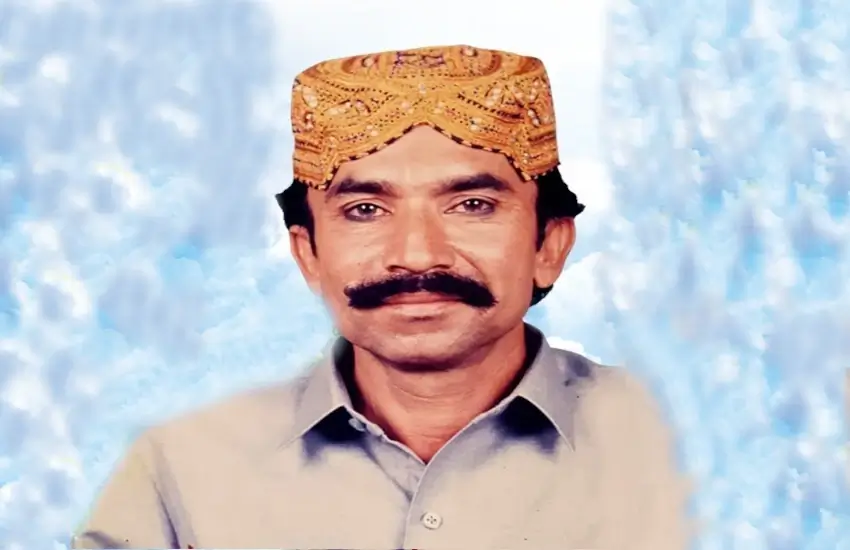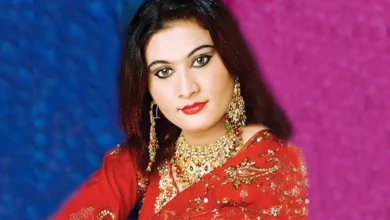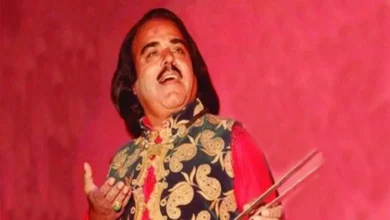Ram Panjwani – Bio, Top 10 Best Sindhi Sufi Music
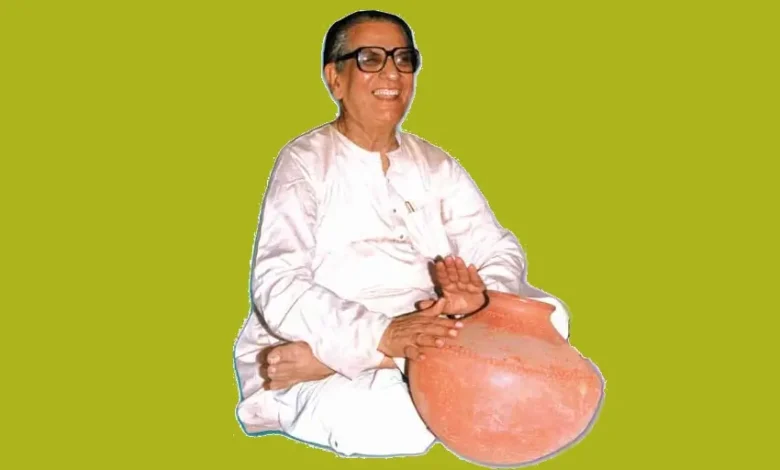
Ram Panjwani was a prominent figure in the world of Sindhi classical music, known for his passionate lyrics and contribution to the traditional fabric of Sindh. His love of music the snake for Sindh and its people still rings today. Known for his melodious voice and memorable lyrics, Panjwani was not just a singer but a cultural icon whose work spanned media and artistic expression.
Best Ram Panjwani Sindhi Folk Music Download
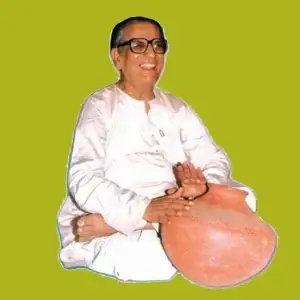
Biography and Early Life
Born in Larkana, Sindh on November 20, 1911, Ram Panjwani was steeped in the rich cultural traditions of his native land in his formative years. His upbringing in this culturally rich region laid the groundwork for his future musical career. From an early age, Panjwani showed a keen interest in music, a passion that would shape his entire life.
Career Beginnings
Panjwani’s initial foray into the world of music was marked by his performances at local events and community events. Influenced by the traditional sounds of Sindh, he started carving a design for himself in regional music. His talent went unnoticed, and he soon had opportunities to perform on larger stages and gradually made a name for himself as a gifted singer.
Major Contributions to Sindhi Music
Ram Panjwani’s contribution to Sindhi Sufi music is vast and varied. He sang many popular songs which became Sindhi traditional songs. His unique and distinctive blend of classical and traditional elements sets him apart from his contemporaries. Songs like “Old is Gold” from films like “Jhulelal”, “Hojamalo”, and “Ladli” showcased his versatility and deep connection to Sindhi heritage.
Acceptance and Awards
Panjwani’s work is not unknown. In 1964, he received the prestigious Sahitya Akademi Award for “Anokha Azamda” This accolade is a testimony to his artistic prowess and significant contribution to Sindhi literature and music. In 50 years, he has received many awards and honors including mana cards, trophies, trophies, and more.
Social Plays and Theater Work
Apart from his music career, Panjwani was also heavily involved in acting. He produced many social plays on important social issues. Notable among these are “Maya Jo Moh” (Greed for Money), “Social Entrepreneur” (Social Entrepreneur), and “Ayo Naon Zamano” (New Age). These plays were well-received and showcased his talent as a storyteller and social commentator.
Founding of Sita Sindhu Bhavan
Panjwani’s dedication to promoting Sindhi culture led to the establishment of Sita Sindhu Bhavan, a cultural forum aimed at preserving and celebrating Sindhi traditions. Through this platform, he has organized several cultural initiatives, exhibitions, and educational programs, which have enhanced the appreciation of Sindhi art and heritage.
Role as an Editor
Apart from his musical and acting endeavors, Panjwani also contributed immensely to Sindhi literature. As editor of the Hindustan Sindhi weekly, he played an important role in the literary development of the Sindhi-speaking people. His editorship ensured that Sindhi literature continued to flourish and reach a wider audience.
Traditional and Sufi musical heritage
Panjwani’s influence also extended into the fields of folk music and Sufi music. He composed and composed many Sindhi bhajans, Hindi and Sindhi ghazals, and Sufi art. His work in these genres added a spiritual dimension to his music, touched the audience deeply, and left an indelible mark on Sindhi musical traditions.
What is Sufi Sindhi Music?
Sufi Sindhi music has a rich history, rooted in the spiritual practices of Sufism. This form of music often consists of poetic verses set to rhythmic melodies, intended to bring listeners closer to the divine. Famous Sufi poets like Rumi, Hafiz, Hazrat Bulleh Shah, Amir Khusrau, and Khwaja Ghulam Farid have contributed immensely to this tradition. Their works, and Panjavani’s works, inspire and uplift audiences.
Spread of Sufi music in Sindh and Hindustan
Sufi music spread across the Indian subcontinent in the early days of the Delhi Sultanate and later reached Sindh. Characterized by soulful melodies and deep lyrics, this genre quickly became popular. Sufi love songs, often performed in the form of ghazals and coffee, have become an integral part of the region’s cultural fabric. The development of Sufi music in Sindh is a testament to its enduring appeal and spiritual significance.
Sufi music is important.
Sufi music has great spiritual and cultural significance. It is a way of expressing devotion and seeking a deeper connection with the divine. The songs, often written by revered Sufi poets, convey messages of love, faith, and transcendence. In modern times, Sufi music transcends cultural and religious divides and is a source of solace and inspiration.
Personal Life
Despite being a public figure, Panjawani led a private and somewhat private life. He balanced his professional accomplishments with a deep commitment to his family and personal interests. His later years were spent nurturing the next generation of Sindhi artists and musicians, ensuring that his legacy continued to flourish.
Impact and Influence
Rama Panjwani’s contribution to Sindhi culture is immeasurable. His Sindhi folk music, drama, and literature leave a lasting legacy that continues to inspire and enrich. Through his dedication to preserving and promoting Sindhi traditions, he has ensured that the rich cultural heritage of Sindh remains vibrant and relevant.
Conclusion
In summary, Rama Panjwani was a multifaceted artist, whose contribution to Sindhi folk music and culture was unparalleled. His work as a singer, playwright, editor, and cultural ambassador has left an indelible mark on Sindhi heritage. His legacy lives on through his music and the countless artists he inspired. For more Sindhi music visit our website Media Music Mania.
FAQs
1. Who was Ram Panjwani, and why is he significant in Sindhi culture?
Ram Panjwani was a celebrated Sindhi classical musician, playwright, and cultural icon. Known for his melodious voice and passionate lyrics, he played a vital role in preserving and promoting Sindhi music, literature, and traditions.
2. What are some of Ram Panjwani’s notable contributions to Sindhi music?
Panjwani is renowned for his unique blend of classical and traditional elements in Sindhi Sufi music. His popular songs include “Old is Gold”, featured in films like Jhulelal, Hojamalo, and Ladli. He also composed Sindhi bhajans, ghazals, and Sufi music, adding a spiritual dimension to his repertoire.
3. What awards and recognition did Ram Panjwani receive for his work?
In 1964, Ram Panjwani received the prestigious Sahitya Akademi Award for his literary work Anokha Azamda. Over his 50-year career, he earned numerous honors, including trophies, certificates, and other accolades, celebrating his contributions to Sindhi music and literature.
4. What role did Ram Panjwani play in Sindhi theater and social activism?
Panjwani was an accomplished playwright, producing socially impactful plays like “Maya Jo Moh” (Greed for Money), “Social Entrepreneur”, and “Ayo Naon Zamano” (New Age). These works addressed significant social issues and showcased his talent as a storyteller and reformer.
5. What is Sita Sindhu Bhavan, and how did Ram Panjwani contribute to its establishment?
Sita Sindhu Bhavan is a cultural forum founded by Ram Panjwani to preserve and celebrate Sindhi traditions. Through this platform, he organized cultural initiatives, exhibitions, and educational programs, fostering a greater appreciation for Sindhi art and heritage.

